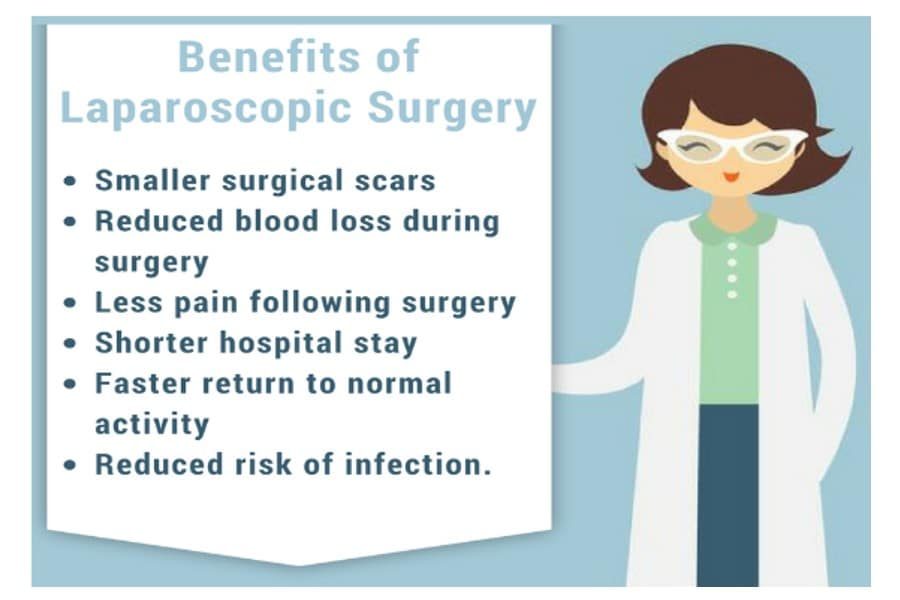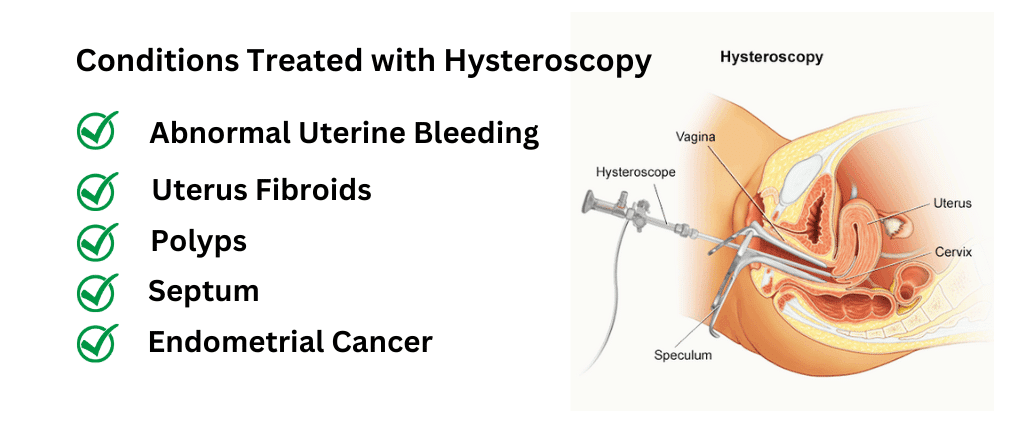Home /Our Specialists /Urology Reconstructive Urology
What are Fertility Enhancing Surgeries?

Fertility Enhancing surgeries are surgeries that help to enhance or restore fertility in women with infertility complications. Many infertility complications like fibroids, endometriosis, dermoid, adhesions, PCOD, etc affect the fertility in a woman.
With the help of these surgeries and procedures, we can correct such infertility issues in women. Expert gynecology surgeons treat and manage such conditions by choosing the right surgery based on the patient’s issue and overall health.
Laparoscopy
Laparoscopy is a surgical procedure commonly used to visualise and examine organs inside the abdomen and pelvis without having to make large incisions in the skin. This procedure is also known as keyhole surgery or minimally invasive surgery. It is a small invasive procedure with fewer side effects, lower risks, and a shorter recovery time.
Why it is done
Laparoscopy for infertility is generally advised when women have unexplained infertility, that is when all other fertility test results are normal. Laparoscopy is also advised to determine the cause of any abdominal pain or discomfort.
Laparoscopy can help the doctor to determine the underlying cause of infertility, such as;
- Blocked fallopian tubes, Hydrosalpinx
- Scar tissue build-up, Adhesions
- Endometriosis
- Fibroid, Ovarian cyst
- Other anatomical abnormalities of the reproductive system
Other anatomical abnormalities of the reproductive system Using laparoscopy doctors not only diagnose but also remove the underlying anomaly causing infertility, giving you a chance for natural conception. In case of any suspicious growth, a biopsy can be taken during laparoscopy. Laparoscopy can be used to remove scar tissue or a fibroid. By treating conditions like endometriosis or hydrosalpinx, laparoscopy increases the IVF success rate.
Side Effects & Recovery
Slight pain and discomfort will be seen after surgery. You may also experience pain in the shoulders and abdomen as the injected gas starts to absorb. It will take a few days for these symptoms to disappear.
Side effects: Though it is a safe procedure, like any other surgery, there are few risks associated with laparoscopy. 1% to 2% of women may develop postoperative complications such as bladder infection, adhesions, infection of the incision site, and hematomas in the abdominal wall. Report to your doctor during any such side effects.
Recovery: Post-surgery, you will be under observation to see if there are any complications. Depending on your physical condition, you will be sent home after several hours or a day. When compared to other traditional surgeries, the recovery time of laparoscopy is much shorter. You will be given medication to help relieve pain. You can begin your normal activities within a few days.

Hysteroscopy
Hysteroscopy is a test done to evaluate the possible causes of infertility. If you are having heavy menstrual bleeding, discomfort, and pain, your doctor may suggest you undergo hysteroscopy. Uterine problems can be the reason behind infertility and repeated miscarriages. Uterine polyps or removal of scar tissue done with the help of hysteroscopy increases the chances of conception. In general, hysteroscopy procedures are of two types:
1. Diagnostic hysteroscopy
Women who are going through issues like abnormal bleeding may be subjected to hysteroscopy to look for the cause of the problem. The procedure may also be used with other diagnostic tests like ultrasound or hysterosalpingography to confirm certain diagnoses. Conditions that can be diagnosed using a Hysteroscopy include abnormal uterine bleeding, Uterine Fibroids, Uterine Polyps, Adhesions, Endometrial Cancer, etc.
2. Operative hysteroscopy
In this type of hysteroscopic procedure, minor surgical interventions are performed. This type of hysteroscopy can be done in conjunction with diagnostic hysteroscopy to treat the underlying issues. Operative hysteroscopy can be used to perform procedures like Hysteroscopic Polypectomy, Endometrial Ablation, Myomectomy, Septoplasty, Adhesiolysis, etc.
Benefits of Hysteroscopy
- Diagnosing Uterine Abnormalities
- Treatment of Uterine Abnormalities
- Evaluation of Infertility
- Treatment of Abnormal Uterine Bleeding
- Diagnosis of Endometrial Cancer
- Performing procedures like Hysteroscopy Polypectomy, Septoplasty, etc
Frequently Asked Questions About Laparoscopic Surgery
A laparoscopy is a major surgery with the potential for many complications such as visceral injury and bleeding, injury in the bowel, or injury to the bladder.
Laparoscopy can potentially lead to multiple organ failures including renal.
Laparoscopy surgery causes less tissue trauma than open operation and is likely to be associated with better preservation of the systematic immune system.
For a few days after the laparoscopy surgery, the patient will feel a bit of pain and discomfort when the incisions are made.
Consult Now
Our Services
- ADVANCED UROLOGY ANDROLOGY & SURGERIES
- IVF & INFERTILITY TREATMENTS
-
+91 9999446622 (For Appointment),
011 4167 5555 (For General Queries) - M 4, Near M Block Market, Greater Kailash-1, New Delhi, 110048
